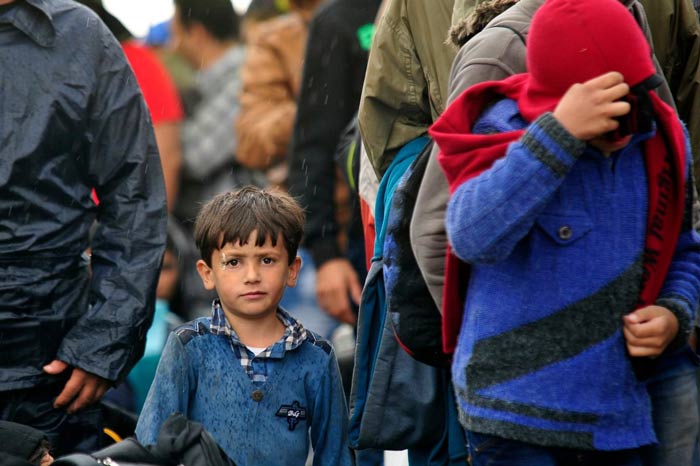DUNIA MAG | Twitter: @duniamagazine
UNICEF CANADA
Toronto and Geneva
New figures reveal that around half a million refugee and migrant children on the move are believed to have turned to smugglers since January 2015, as delays and desperation drive them into the hands of criminals quick to exploit their vulnerability.
In order to shine a light on the murky underworld of migrant smuggling in Europe, and better shape the response, UNICEF has gathered information from a range of sources – including Europol-Interpol, testimonies from children themselves, publications from UN agencies, NGOs, and corroborated media reports.
Figures published this week by Eurostat reveal that more than 580,000 asylum claims have been lodged by children in Europe* since January 2015. With a recent Europol-Interpol report suggesting more than 90 per cent of journeys made by refugees and migrants coming to the EU are facilitated by smugglers working for criminal networks, at least half a million children are estimated to have used smugglers at some point on their journeys. Unaccompanied children account for nearly 100,000 of the total and are especially prone to use smugglers.
“Closing official borders was like locking the doors but leaving the windows open, which just pushes children, especially the unaccompanied, to take greater risks,” said Marie-Pierre Poirier, UNICEF Special Coordinator for the Refugee and Migrant crisis in Europe. “States should be building up stronger protection systems for children, not building higher walls.”
Although the tide of refugees and migrants has considerably slowed down, border closures, tightened migration policies and the EU-Turkey agreement have led these criminal groups to adapt well-established drugs and arms smuggling routes to carry refugees and migrants.
“Migration control policies rather than the real and pressing rights and needs of refugee and migrant children have often guided states in their response. If there were safe and legal options, children and their families would not be forced into the hands of smugglers and traffickers who take many of them into harm’s way on irregular routes.”
People smuggling and human trafficking is now estimated to be worth US$5-6 billion annually. As the number of people making perilous journeys has fallen, Europol suggests these criminals have trebled their prices, with many migrants now paying up to €3,000 for a single leg of their journey.
Children often carry a debt with them due to being smuggled. Settling these debts puts them at increased risk of exploitation by smugglers, with reports of unaccompanied children in France and Italy exchanging sexual services, being forced to work and coerced into committing crimes.
To help protect refugee and migrant children, UNICEF urgently calls for:
– Much greater efforts need to be put into documenting smuggling and trafficking targeted at children on the move.
– In transit countries, particularly in Greece and Italy, it is critical that child protection actors be equipped to provide individual counselling and support to all vulnerable refugee and migrant children, with a particular focus on unaccompanied and separated children.
– More stringent qualitative data gathering related to children in the context of the refugee and migrant response in Europe.
When the quality of the response improves, and includes an individual interview within 72 hours, better access to information, nomination of an adult of reference such as a guardian, regular feedback on their own file and improved access to legal assistance, the risk of the children leaving unnoticed to continue their journeys with smugglers significantly decreases.
UNICEF has also been establishing mobile teams in key areas with child protection experts to provide services to children on the move and to help quickly identify children who may be victims of smuggling and trafficking. For example, specialist staff and partners at centres for the unaccompanied in and around Athens and at the port in Lampedusa, Italy, are helping to identify and assist women and girls who may have become victims of sexual exploitation. UNICEF is also committed to ongoing monitoring and research on the impact of smuggling and trafficking on refugee and migrant children.
Website: www.unicef.ca
Join mailing list for updates and monthly newsletters

